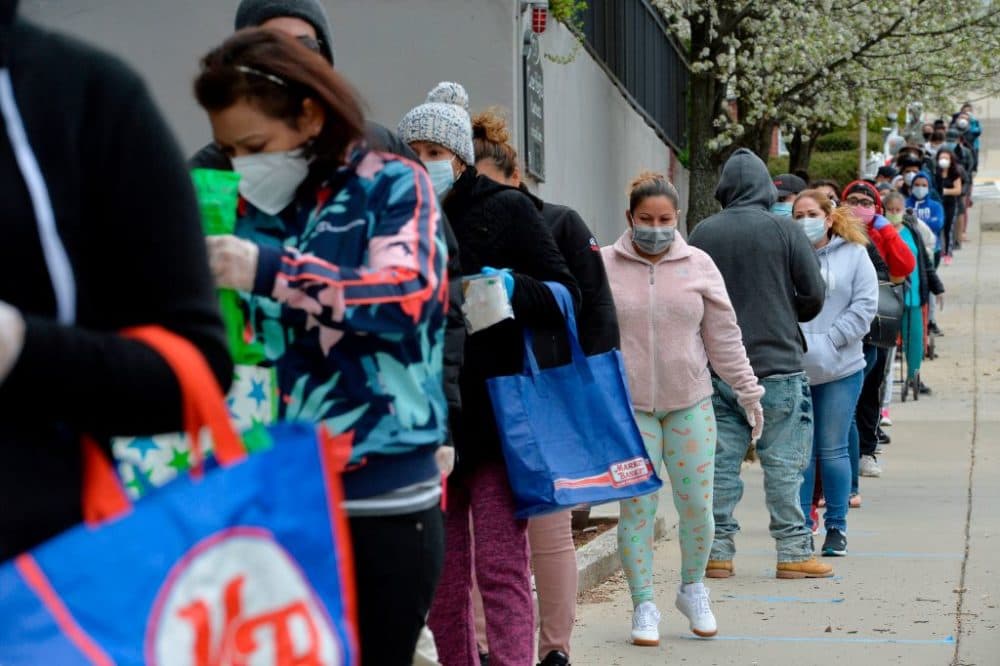Advertisement
Depression increased through the pandemic's first year, BU researchers say

A study from the Boston University and Brown University schools of public health has found there was an increasing rate of depression among U.S. adults over the first year of the pandemic, with higher prevalence among those with low incomes and multiple COVID-19-related stressors.
The researchers surveyed more than 1,100 adults this past spring — most of the same group they had studied in March and April of 2020. They found that almost 33% of the study participants reported depressive symptoms this year, up from 28% percent at the start of the pandemic.
According to lead researcher Catherine Ettman, driving factors included having low income, not being married and pandemic-related stressors.
"... such as challenges finding child care, difficulty paying rent or finding housing, and job loss," Ettman said. "So people who reported experiencing four or more stressors were more likely to report probable depression."
The researchers found the likelihood of depression among those with low incomes increased over the first year of the pandemic. The 2021 survey revealed the likelihood of depression among those with household incomes less than $20,000 was seven times higher than for those with household incomes of $75,000 or more, compared to 2.3 times higher the year before.
"So what we found was that gaps are increasing ... We want to be aware that the pandemic has been unequal and that we're seeing the mental health effects have been unequal," Ettman said. "So if we know that stressors such as challenges finding child care, difficulty paying rent and job loss are associated with a greater probability of depression, then policies aimed at reducing those stressors can help."
The study discovered mental illness has persisted longer in the pandemic than following other traumatic events, including Sept. 11 and Hurricane Katrina; that's likely due to the length, scale and cumulative effect of the pandemic and its "ubiquitous disruption" in people's lives, according to the report.
The researchers believe their study is the first to examine the change in depression rates in a nationally representative sample of U.S. adults over the first year of the pandemic. Its findings are in line with those of other studies that have found increasing rates of mental illness in the U.S. during the pandemic.
